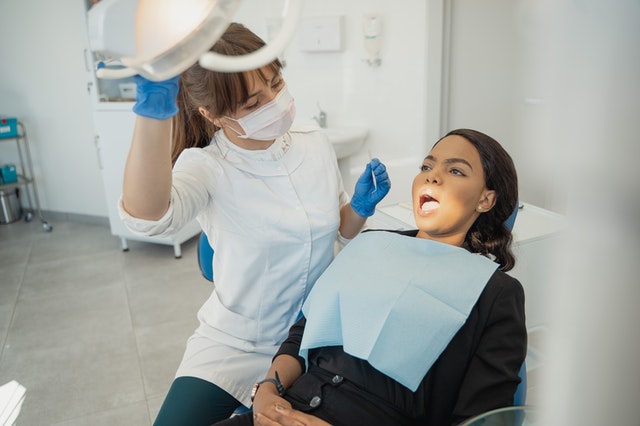
According to the recommendation from the American Association of Orthodontists, initial dental evaluations should start no later than 7 years of age. However, instead of dental treatments, vigilant examinations might be more necessary at such early stages. A child’s first oral visit could be important as it can determine how children perceive dental care for the rest of their future. Thus, pediatric dentistry has been a recognized dental specialty dedicated to oral problems in children. Common oral problems in kids like decay and falling teeth can be expertly addressed in their dental office through timely appointments.
Interceptive Orthodontics For Children
Early treatment or interceptive orthodontics might benefit children starting from 7 years of age onwards. This is probably the time around which most of their primary or baby teeth are still intact. Dental and facial guidance procedures at this stage can provide better control over the growth of permanent teeth. This can be achieved by addressing the jaw and teeth structure while they are still in their developing journey. Few major benefits of early orthodontic intervention in kids may include:
- A more accurate prognosis for permanent teeth developments
- Better bite problem assessments for open bite, deep bite, or crossbite
- Rectification of habits like tongue pushing and thumb sucking
- Minimizing probable damage risks from protruding teeth
- Guided growth to accommodate emerging teeth onto the jaw
- Improve overall dental appearance to boost self-esteem in kids
- Easing functional arrangement of teeth, face, and lips
- Reduce the chances for more invasive corrections in future
Tips For A Happy Dental Visit
Scheduling
Easier ways to get a dentist’s appointment can always be the first comfort for concerned parents and guardians. Offering online scheduling can be beneficial for working guardians with simple forms to fill. Moreover, this can ease out the calling traffic for somebody more concerned. Automatic parental reminders can be another convenient way for getting adequate dental attention for kids. Done through emails and text messages, this can substantially prevent missed appointment issues. But offering appointments beyond working hours could be the best thing for a dental clinic. This way, parents might save on leaving work and pulling out kids from school to attend dental appointments.
Surroundings
Although dental clinics can be designed anyway, cleanliness and comfort should always be an integral part of it. Surroundings are expected to reduce anxiety in children during oral procedures at the least. According to some studies, kids prefer watching cartoons or listening to rhymes while being treated. As such, children might appreciate clinic walls painted with familiar cartoon characters, enjoyable dental chairs stuffed with toys, or suitably scented environments. Some clinics might even offer candies and slurps to kids, which can go a long way to make their first visit more enjoyable.
Gender Similarity
Statistics reflect that kids may prefer to be treated by dentists of the same gender. This might have to do something with the level of comfort. Past studies suggest that the majority of kids would prefer seeing a lady dentist handling them in a clinic. However, a better option could be to go for a dentist who has a strong reputation for working around kids.
Supportive Staff
Assuring and supportive dental staff can play a vital role in calming anxious children in clinics. Rather than wearing all whites, staff can be more welcoming towards younger patients with more colorful uniforms. Kids need to be in a happy mood to learn the basics of dental care from their first clinic visit. As such, smiling staff can keep kids engaged more playfully until the dentist is ready to examine them.
Parental Company
Children might become apprehensive in the absence of their parents at the clinic. This can be quite common, especially for the youngest ones. To make them comfortable, first-timers may be treated or examined while sitting on their parent’s lap. Progressive encouragement to sit on the dental chair on their own may be tried in subsequent visits. Some dentists might argue against this fact to build healthier patient-doctor bonding, but on first visits, a kid’s comfort should always be paramount for all concerned.
Even with all the efforts, there might be chances for nervousness in kids on their first dental visits. Crying or refusing to allow dental examinations can be obvious reactions. But this should not be discouraging for any parent or doctor. A child might not allow dentists to do everything the first time. However, more time spent in the clinic and with the expert can make them realize dentistry as a part of normal life. Over time, the connections might get stronger, preventing anxiety over dental visits in the future.
Hey welcome to my blog . I am a modern women who love to share any tips on lifestyle, health, travel. Hope you join me in this journey!

Speak Your Mind